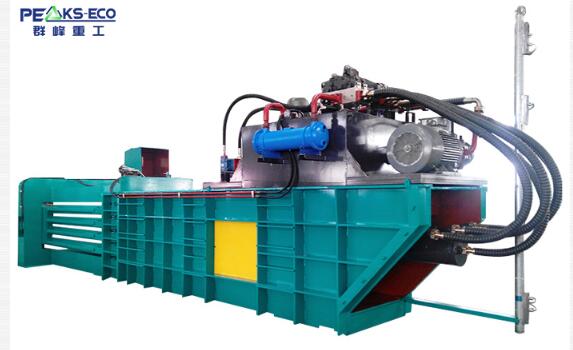Vertical balers are a cornerstone of waste management in various industries, helping to efficiently compress recyclable materials into compact bales. These machines operate under tremendous pressure, relying heavily on hydraulic systems to get the job done. To ensure their longevity and optimal performance, one critical maintenance task often overlooked is changing the hydraulic oil. In this article, we will explore the importance of regular oil changes in vertical balers and provide guidance on how often this should be done.

Vertical balers use hydraulic systems to compress materials into tightly packed bales. This process involves the use of hydraulic fluid or oil, which plays a crucial role in providing the necessary force and lubrication for the machine's moving parts. Over time, this oil can become contaminated with debris, moisture, and wear particles, leading to reduced efficiency and potential damage to the baler.
Determining how often to change the hydraulic oil in a vertical baler depends on several factors:
Usage Frequency: The more frequently the baler is used, the faster the hydraulic oil will degrade. Heavy usage may necessitate more frequent oil changes.
Environmental Conditions: Balers located in harsh environments with high levels of dust or moisture may require more frequent oil changes to prevent contamination.
Oil Quality: The quality of the hydraulic oil used can impact its longevity. High-quality oil may last longer and require less frequent changes.
Manufacturer Recommendations: Always refer to the manufacturer's guidelines for specific maintenance recommendations.
While the frequency of oil changes can vary, a good rule of thumb is to change the hydraulic oil in a vertical baler every 1,000 to 2,000 operating hours or annually, whichever comes first. However, it's essential to monitor the oil's condition regularly and adjust the maintenance schedule accordingly. Signs that it's time for an oil change include:
Increased Noise: Unusual noises during baler operation can indicate friction caused by contaminated or deteriorating hydraulic oil.
Sluggish Performance: If the baler's performance becomes sluggish or less efficient, it may be a sign that the hydraulic system is not operating optimally due to degraded oil.
Visible Contamination: If you notice visible particles, debris, or discoloration in the hydraulic oil, it's a clear sign that a change is necessary.
Leaks or Seals Damage: Frequent hydraulic leaks or damage to seals can be caused by deteriorating oil, and addressing the root issue often involves changing the oil.
Changing the hydraulic oil in a vertical baler should be conducted following a systematic procedure to ensure thorough maintenance:
Prepare the Baler: Ensure the baler is in a safe and stationary position before starting any maintenance work.
Drain the Old Oil: Remove the drain plug or access point for the hydraulic oil reservoir and allow the old oil to drain completely into an appropriate container for disposal.
Replace the Filter: While changing the oil, it's a good practice to replace the hydraulic filter to ensure efficient filtration of new oil.
Fill with New Oil: Refill the hydraulic oil reservoir with the appropriate type and quantity of fresh hydraulic oil recommended by the manufacturer.
Inspect for Leaks: After the oil change, inspect the hydraulic system for any leaks or abnormalities.
Test the Baler: Run a few cycles of the baler to ensure that it operates smoothly and efficiently.
Regular oil changes are essential for maintaining the optimal performance and longevity of vertical balers. By following manufacturer recommendations and monitoring the condition of the hydraulic oil, businesses can avoid costly repairs and downtime associated with neglected maintenance.
Remember, the frequency of oil changes may vary depending on factors like usage, environmental conditions, and oil quality. It's always advisable to consult the manufacturer's guidelines for specific maintenance intervals and procedures. By prioritizing proper maintenance, businesses can ensure that their vertical balers continue to operate efficiently, contributing to a more sustainable waste management process.
For any further questions about maintaining your vertical baler or sourcing high-quality hydraulic oil, don't hesitate to contact us. We are your reliable supplier for all your waste management equipment needs.